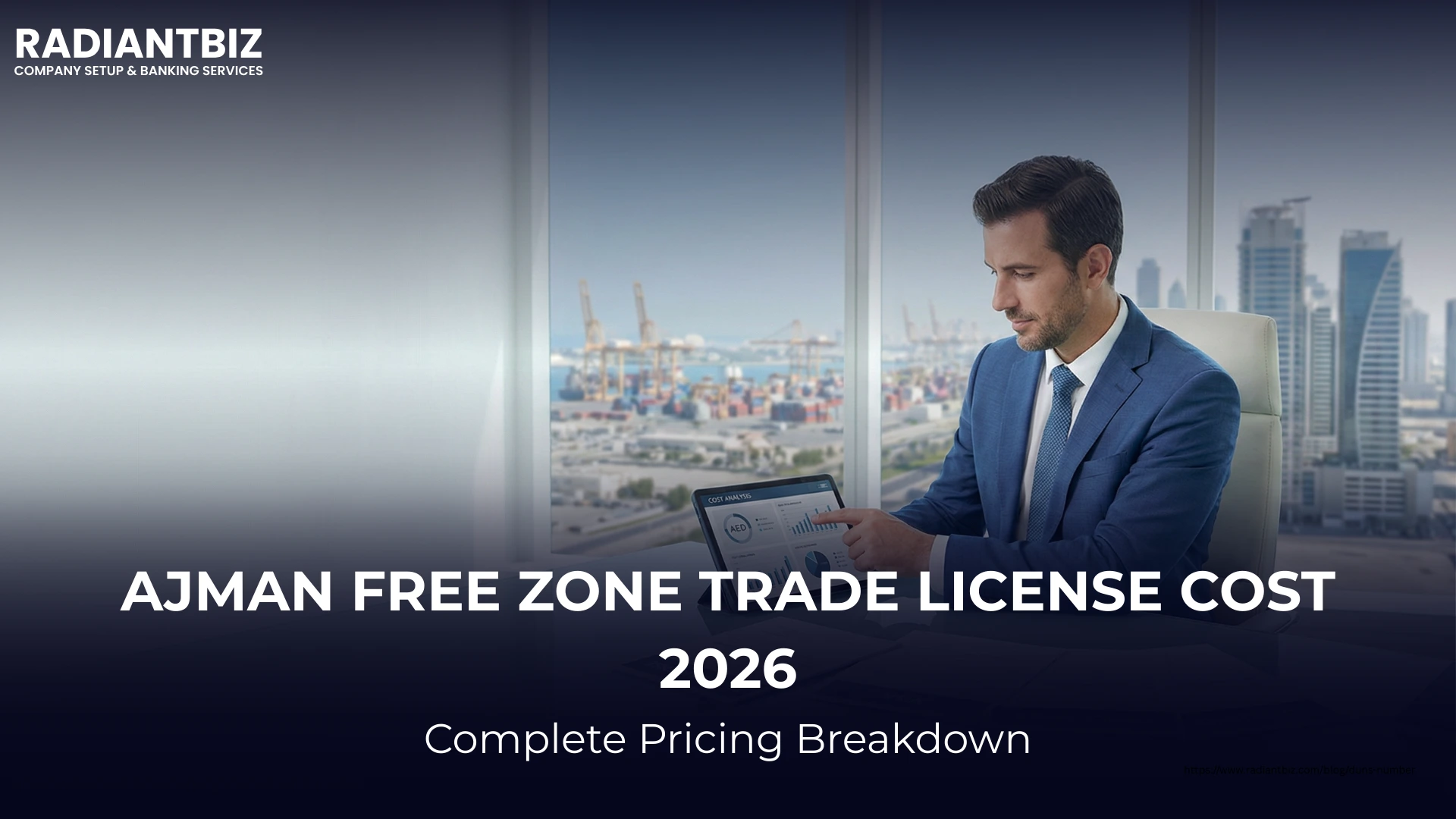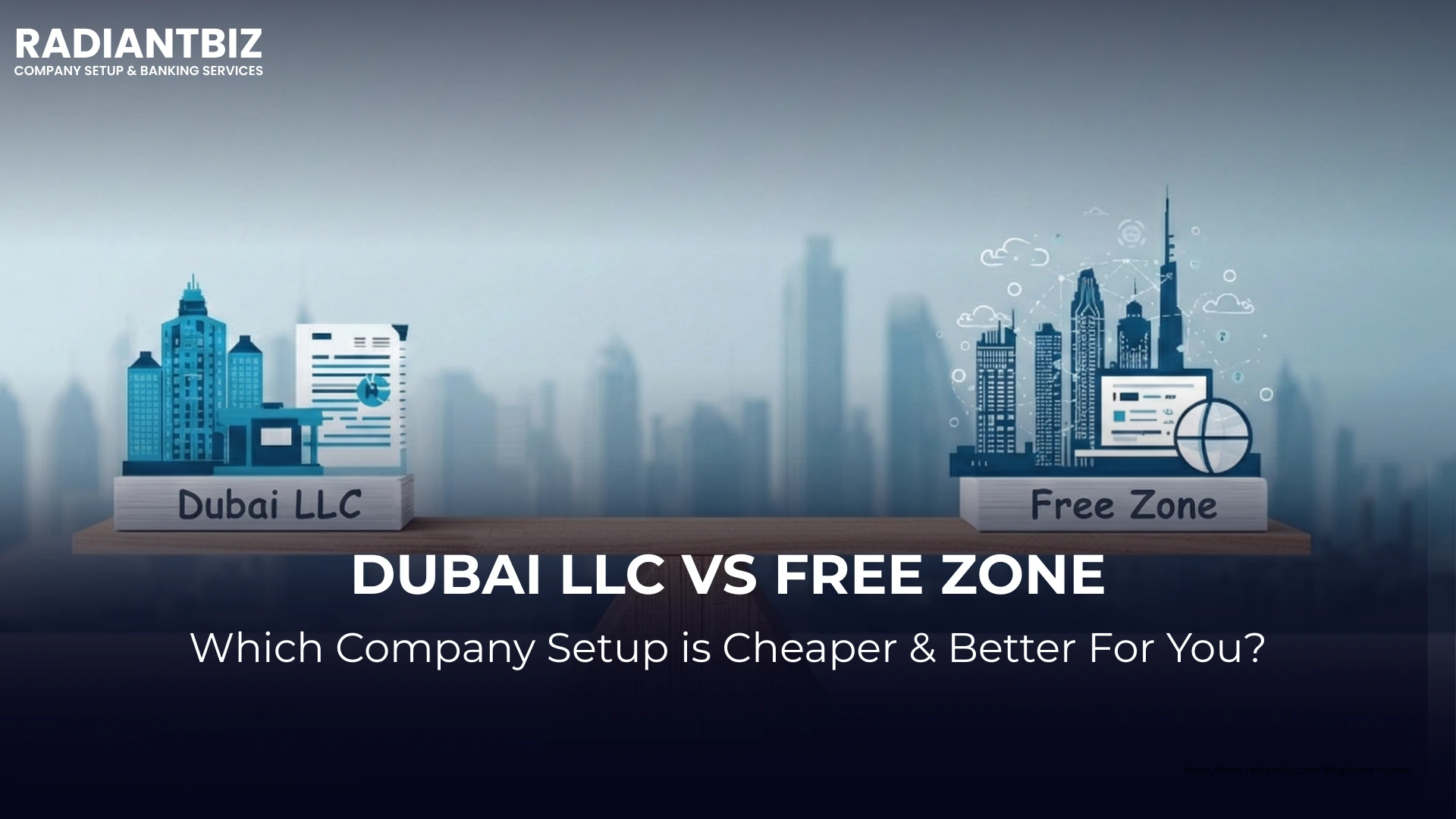Mainland License In Dubai – Step By Step Guide

.webp)
Table of Contents
Dubai is renowned as a global business hub, offering limitless opportunities for entrepreneurs and investors eager to establish their footprint in the region. One of the most crucial decisions when setting up a business in Dubai is choosing between a Dubai Mainland License and a Free Zone License. Understanding the benefits of each can greatly impact the success of your business venture.
What is a Dubai Mainland License?
A Dubai Mainland License, issued by the Department of Economic Development (DED), allows businesses to operate freely across both local and international markets. Unlike Free Zone licenses, which restrict business activities to specific geographic zones, a Mainland License provides the flexibility to trade within the UAE and beyond.
Who Needs a Dubai Mainland License? Key Sectors and Business Activities Explained
A Dubai Mainland License, issued by the Department of Economic Development (DED), is essential for businesses looking to operate across Dubai's unrestricted geographical borders. Unlike Free Zone licenses, which limit where a company can trade, a Mainland License offers broad access to the UAE market, providing significant advantages for businesses looking to expand their reach.
Key Benefits of a Dubai Mainland License
- Conduct Business Anywhere in Dubai: Mainland companies are not restricted by location and can operate throughout Dubai and the entire UAE.
- Access to Government Contracts: Businesses with a Mainland License are eligible to bid for UAE government contracts.
- Stronger Market Presence: Companies operating under a Mainland License have greater visibility and access to the local market, providing more opportunities for growth.
Types of Mainland License in Dubai, UAE?
In Dubai, there are three primary types of mainland trade licenses, each catering to different business activities:
1. Professional Trade License:
This license is required for businesses offering specialized services such as consultancy, medical, engineering, or legal services. Individuals or firms in these fields need to prove their qualifications. With a professional license, foreign investors can own 100% of their business, but they must appoint a local service agent (LSA) to handle regulatory formalities.
2. Commercial Trade License:
Ideal for businesses involved in trading activities, such as buying and selling goods or services within Dubai. This license applies to companies in industries like retail, real estate, and general trading. It allows for the formation of either a Limited Liability Company (LLC) or a Sole Establishment, and it's widely used by businesses wanting to engage in both local and international trade.
3. Industrial Trade License:
Businesses involved in manufacturing or production activities must obtain an industrial license. This license enables companies to convert raw materials into finished products, and it often requires approvals from other government bodies, like the Ministry of Economy and the Ministry of Energy.
These trade licenses are issued by the Department of Economic Development (DED) and offer various benefits depending on the business activity and structure
Who Requires a Mainland License in Dubai?
Here are the key sectors and business activities that require a Mainland License to operate in Dubai:
1. Trading
Businesses involved in the buying and selling of goods and commodities—whether in wholesale, retail, or both—need a Mainland License. This license allows traders to operate without geographic restrictions, making it ideal for companies that want to scale their business across Dubai and the UAE.
2. Professional Services
A Mainland License is mandatory for businesses offering professional services such as:
- Consultancy
- Legal and accounting services
- Engineering and architectural services
- Medical practices
- IT and technology services
Mainland companies in these sectors can serve clients across Dubai and engage in both public and private contracts.
3. Import & Export
Companies involved in importing goods from international markets or exporting locally manufactured products require a Mainland License to operate freely in Dubai. This is especially important for businesses looking to trade across the UAE and enter international markets without restrictions.
4. Tourism
The tourism industry is a key driver of Dubai's economy. Businesses such as:
- Travel agencies
- Tour operators
- Hotels and hospitality services
must obtain a Mainland License to operate within Dubai’s highly competitive tourism market and engage in both local and international partnerships.
5. Manufacturing
If your business involves the manufacturing of goods in Dubai, a Mainland License is essential. This license enables manufacturers to set up their operations without the limitations of Free Zones, allowing them to distribute products both locally and internationally.
Local Service Agent (LSA) Requirements
For certain business activities, companies may need to appoint a Local Service Agent (LSA). An LSA must be a UAE national or a UAE-based company and is required for specific sectors to ensure compliance with local regulations.
Essential Requirements to Obtain Mainland License in Dubai
To obtain a Dubai Mainland License, several essential requirements must be met, ensuring your business aligns with legal and operational regulations in the UAE.
1. Business Structure
The first step is selecting the legal structure of your business. Common structures include:
- Limited Liability Company (LLC): The most popular option, allowing up to 100% foreign ownership in most sectors.
- Sole Establishment: For individuals wanting full ownership, typically for professionals and freelancers.
- Civil Company: For partnerships offering professional services.
- Branch of a Foreign Company: Ideal for expanding foreign entities into Dubai.
Each structure has distinct regulations, with LLCs being the most flexible for expatriates.
2. Business Activity
You must define your business activities and ensure they are approved by the Department of Economic Development (DED). Some industries, such as healthcare or financial services, may require additional approvals from relevant ministries or authorities before you can proceed.
3. Physical Office Space
A requirement for obtaining a Mainland License is securing physical office space in Dubai. You must have a valid tenancy contract and record it with Ejari, Dubai’s lease documentation system. This ensures compliance with local real estate regulations and proves that your business has a legal address.
4. Capital Investment
While there is no strict minimum capital requirement for most businesses, the amount needed can vary based on your business activity, size, and visa needs. For example, companies requiring numerous employee visas may need to show higher financial stability and capital.
By fulfilling these requirements, you can secure a Mainland License and unlock the full potential of operating across Dubai and the UAE.
How to Get Dubai Mainland License?
To obtain a Dubai Mainland License, here are the essential steps you'll need to follow:
Step 1: Choose Your Business Activity
Identify the specific business activity you want to pursue. The Department of Economic Development (DED) in Dubai offers a comprehensive list of permissible activities, including trading, consultancy, and more. Ensuring your selected activity is approved is essential for proceeding with the licensing process.
Step 2: Select a Legal Structure
Next, choose the legal structure of your business. Common options include Limited Liability Company (LLC), Sole Establishment, Civil Company, or a branch of a foreign company. For LLCs, you can enjoy 100% foreign ownership for most business activities. The legal form impacts ownership, liability, and compliance requirements, so this is a critical step.
Step 3: Reserve Your Company Name
Choose a unique trade name for your company that complies with DED's guidelines. Submit this name for reservation with the DED. Ensure it reflects your business activity and aligns with Dubai’s trade naming conventions.
Step 4: Secure an Office Space
A physical office space is mandatory for mainland businesses. Once you have leased your office, you will need an Ejari certificate (proof of a documented lease agreement) as part of the documentation required for the licensing process.
Step 5: Submit Initial Approval
After reserving your trade name, submit an application for initial approval to the DED. This approval confirms that your business activities and structure are acceptable and compliant with Dubai regulations.
Step 6: Prepare Legal Documents
Prepare essential legal documents such as:
- Initial approval receipt
- Trade name reservation certificate
- Memorandum of Association (MOA)
- Ejari certificate
- Shareholders' passports and manager's passport-sized photographs
Some business activities may require additional approvals from external authorities based on industry-specific regulations.
Step 7: Pay License Fees
Settle the required license fees, which vary depending on your business activity and structure. The DED will provide a detailed breakdown of these costs.
Step 8: Receive the Trade License
Once all approvals are obtained and fees are paid, you will receive your Dubai Mainland License. This officially permits your business to operate in Dubai’s mainland.
Step 9: Enroll with Immigration and Labor Authorities
To hire employees, your business must be enrolled with the Ministry of Human Resources and Emiratisation (MOHRE) and the General Directorate of Residency and Foreigners Affairs (GDRFA). This enables visa issuance for yourself and your staff.
Step 10: Open a Corporate Bank Account
Finally, open a corporate bank account by submitting your trade license and other necessary documents, including passport copies and residency permits.
If you prefer expert assistance, business setup consultants can help guide you through these steps, ensuring a smooth process while adhering to Dubai’s regulations
How Much Is a Mainland License Cost in Dubai?
The cost of obtaining a Dubai Mainland license in 2024 typically ranges from AED 10,000 to AED 30,000 for a basic Limited Liability Company (LLC) with one investor visa. This cost covers the basic government fees for the license, though additional expenses such as visa fees, office space rentals, and other official charges may apply depending on your business activity and visa requirements.
For those setting up an LLC, one of the major advantages is 100% foreign ownership, meaning there is no longer a need for a local UAE partner in many business sectors, which is a significant benefit for foreign investors.
Additional costs you may need to account for include:
- Visa Fees (renewable every three years)
- Office Space and Rent (including tenancy contracts and Ejari certificates)
- Other Government Approvals or Permits, if required by your specific business activity.
For a more comprehensive package, including assistance with legal documents, office setup, and immigration processes, expect higher costs that could range between AED 15,000 to AED 50,000, depending on the scale of your business and services you opt for.
It's advisable to consult with a business setup specialist in Dubai to get detailed guidance and optimize costs.
Benefits of Having a Dubai Mainland License
Dubai mainland business licenses offer several key benefits to Indian investors and entrepreneurs, making it an attractive choice for those looking to establish a presence in the UAE. Here are the top advantages:
1. Opportunity to Trade Freely
A Dubai mainland license allows businesses to trade directly with both UAE-based and international customers. Unlike free zone businesses, which face trading restrictions beyond their zones, mainland companies can engage in commerce throughout Dubai and the UAE without limitations. This opens up more expansive growth opportunities in the broader UAE market.
2. Market Access and Presence
Mainland businesses have the freedom to open offices or retail spaces anywhere in the UAE. This enhances visibility and establishes a stronger market presence, particularly useful for Indian investors looking to tap into the vibrant local economy. Having a physical office location across Dubai enhances customer trust and the brand’s credibility.
3. Eligibility for Government Contracts
Mainland companies can bid for lucrative UAE government contracts, something unavailable to free zone entities. These government projects can significantly boost revenue and brand recognition, presenting an excellent opportunity for long-term success in Dubai’s market.
4. Full Ownership in Key Sectors
Recent reforms allow 100% foreign ownership of mainland businesses in many sectors, including e-commerce, logistics, and manufacturing, eliminating the need for a local sponsor. This is a major draw for Indian investors, providing full control over business operations while enjoying the perks of mainland operations.
5. Wider Business Activity Options
With a mainland license, companies can operate in a broader range of industries compared to free zones, which often have industry-specific restrictions. Mainland businesses can pursue various commercial, professional, or industrial activities, offering greater flexibility in expanding into different sectors.
6. Enhanced Credibility
Operating under a mainland license signals legitimacy, as it means the business adheres to the UAE’s rigorous regulatory standards. This helps build trust with both local and international clients, boosting the company's reputation and attracting more investors.
In short, Dubai mainland licenses provide Indian entrepreneurs with flexibility, broad market access, and an enhanced ability to grow and scale their businesses in the UAE. These benefits, coupled with full ownership rights in many sectors, make it a strategic choice for those aiming for long-term success.
For more tailored advice on setting up a mainland business, it’s always recommended to consult business setup specialists



2.png)




.avif)